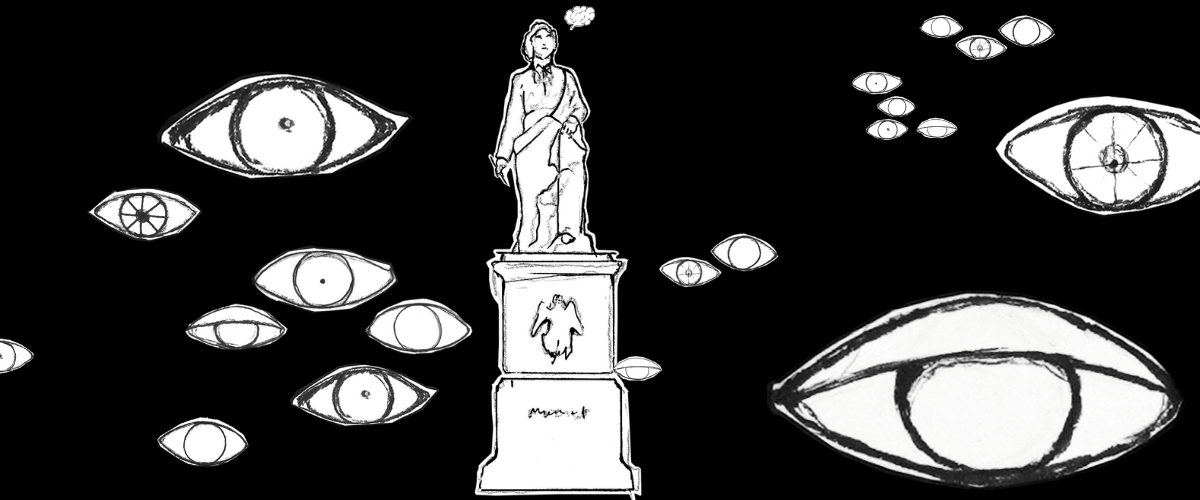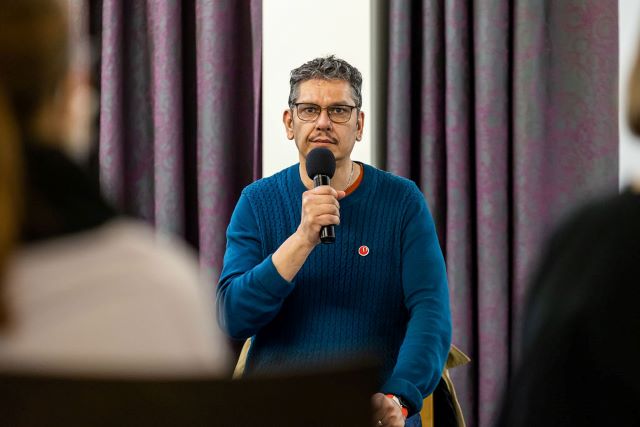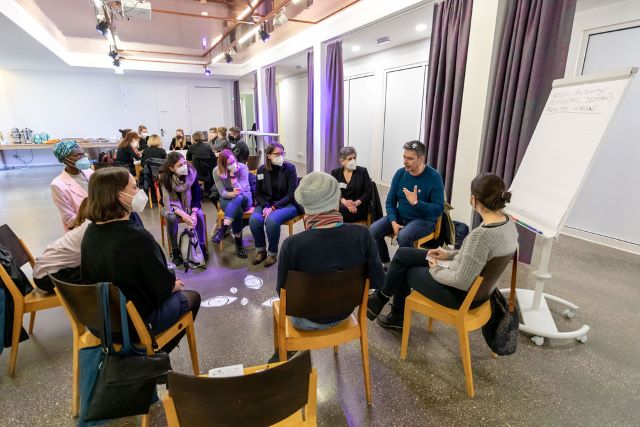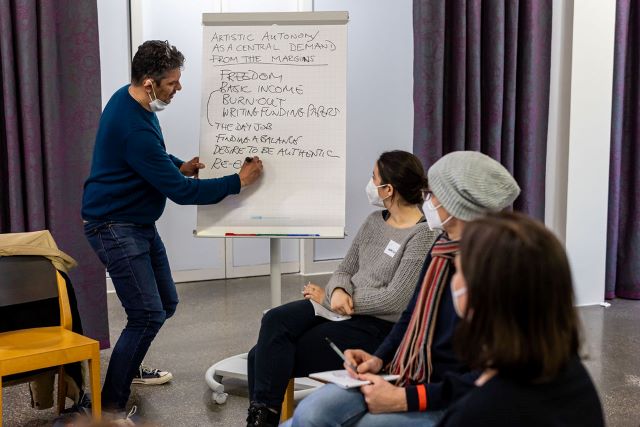“The way we organize the arts in the West needs to be rebuilt from the ground up”
Hassan Mahamdallie in conversation with Anita Moser and Ielizaveta Oliinyk
Austria is an increasingly diverse society, even though like many other European countries, it doesn’t always recognize itself as such. I think fascinating developments will emerge from Austria – absolutely no doubt about it at all. People are taking the first steps and are determined to change and diversify the cultural sector. That’s as much as I could observe from my fleeting visit.
- Hassan Mahamdallie © Ouriel Morgensztern
- World Café © Ouriel Morgensztern
- World Café © Ouriel Morgensztern
These are interesting observations. In Austria, some discussions, like the class discussion, have not taken place or were very limited compared to what you had in the UK, where you have a completely different history in terms of class.
Well, people say the English are obsessed with class, which is true. We also have a history of social movements, that begin amongst marginalized groups but are then taken up by wider working-class forces. For example, we have a very strong antiracist and antifascist tradition in the UK. In the 1980s it developed a concept called ‘political blackness’ that those from migrant communities and others who wanted to support them could all unify around. This meant you could be my colour, or someone from Africa, or you could even be a white antiracist, and be part of the movement against racism. It was a very broad umbrella under which those who suffered racism, and those who were in solidarity with them, could gather. Although the term ‘politically Black’ no longer exists, the organising principle somewhat remains.
When I was a teenager, I was a member of ‘Rock Against Racism’ – an incredibly effective cultural movement against racism and fascism in the 1970s and early 1980s. We held massive carnivals with punk and reggae bands and big marches. And we defeated the very real fascist threat we faced at that time. That victory enabled the multiculturalism that today drives cities like London, Birmingham and Manchester to develop.
We have a history in the UK of these movements, which partly has to do with the fact that Britain’s empire came home. One of our popular anti-racist slogans of the 1970s was ‘We are here, because you were there’. Maybe an advantage we have in the UK is this unifying language around progressive social and political movements still resonates. It means that even in the arts we tend to organize ourselves across our different interest groups or identities when needed and be strident on occasion. But we also have Brexit!
“Because, to be honest, they are doing it for everybody, aren’t they?”
What could or should an initiative like D/Arts accomplish for the arts sector and/or for society?
I wouldn’t want to dictate that, because that’s entirely up to the people involved, but I do think they have a clear vision of what they want to achieve. And they have an energy that draws others to them. Clearly, they need resources because they are confronting deeply embedded power and privilege.
We should really thank them, because some of them are sacrificing their own artistic practice to be activists on behalf of others: putting aside what they love to do most in order to fight for a more equitable future. Politicians and institutions should step forward and say, ‘you know, the people involved in D/Arts are doing a really good and important job – let’s make sure they get proper resources and funding to continue what they’re doing, that matches the totality of their ambitions.’ Because, to be honest, they are doing it for everybody, aren’t they?
Hassan Mahamdallie, Anita Moser, Ielizaveta Oliinyk ( 2022): “The way we organize the arts in the West needs to be rebuilt from the ground up” . Hassan Mahamdallie in conversation with Anita Moser and Ielizaveta Oliinyk. In: p/art/icipate – Kultur aktiv gestalten # 13 , https://www.p-art-icipate.net/the-way-we-organize-the-arts/





 Artikel drucken
Artikel drucken Literaturverzeichnis
Literaturverzeichnis